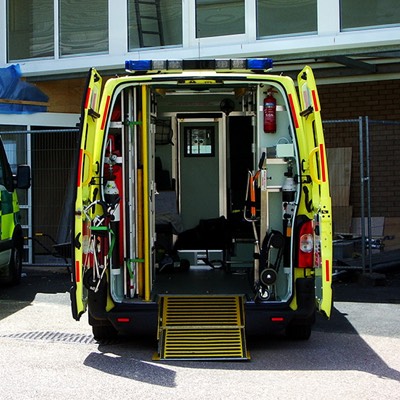Why SBRI matters
December 13, 2017Why SBRI matters
The SBRI programme provides vital funding to get innovations off the ground – its successes are clear, says Health Innovation Network Chief Executive Tara Donnelly.
Whenever I hear that a health innovation is being adopted across the country to improve patient safety and save the NHS money, I’m reminded of the power of innovation and the role that Academic Health Science Networks have to play in spreading it across the health and care system.
Recently, an independent review by David Connell of Small Business Research Initiative (SBRI) Healthcare, the NHS England funded programme, recognised the critical role to the success of the programme played by the 15 Academic Health Science Networks (AHSNs). See SBRI story
The SBRI programme provides vital funding to get innovations off the ground in two phases. The first is for feasibility testing up to £100,000 and the second is to develop a prototype and is worth up to £1 million.
Since launching in 2009, £69 million has been awarded to over 150 companies developing solutions for major NHS challenges such as cancer detection, dementia care, mental health in young people and self-management of long-term conditions. These funds provide crucial support to early stage health care ideas and help convert them into products with evidence that can help patients and the NHS.
But why does this latest report matter? Most importantly it matters because this is public money and money that has been earmarked to improve our NHS through innovation. The fact is, I regularly hear about how innovations that the AHSN Network is spreading are saving the NHS money, improving the patient experience and indeed saving lives.
For example, we know that the London Ambulance Service has adopted Perfect Kit Prep, which cuts paperwork in medicines management and is a vital audit tool, across all its ambulance stations. See Perfect Ward

At the same time North West London CCGs have successfully trialled digital tools to encourage self-care as part of important initiatives to reduce weight, improve fitness and tackle Type 2 diabetes across their populations. The products used include Oviva, OurPath and Changing Health who we have supported through our London-wide Digital Health Accelerator.
But it’s not all about using smartphone apps. Working with BBC Choices, we also this year produced a video that helps parents and clinicians spot the signs of sepsis – a condition that kills around 44,000 each year which if spotted earlier could be prevented.
The video has been viewed more than 1.7 million times and has saved at least one life with a mother telling us on Facebook how the video helped her save her daughter. Numbers are important in equating the success of innovations but when a mother says a video helped her save her daughter’s life, that makes it all worthwhile. The film is here and if you can share it with more people, we’d be delighted.
But in terms of the significance of the SBRI review, this report underlines the important role that AHSNs play in spreading innovation into our NHS at pace and scale. It’s vital that we tap into clinical and commercial expertise to deliver solutions to health challenges identified in our communities and hospitals so that we can improve the patient experience.
Up and down the country, AHSNs are using their local knowledge to work closely with the SBRI to ensure funding is aimed at innovative companies solving healthcare problems.
For example, 11 Health’s ostom-i wireless ostomy pouch alert system, which lets patients know when to empty their stoma pouch, received critical financial support from SBRI Healthcare as well as support from the Digital Accelerator mentioned above. This is helping the roll-out of the product and improving the lives of users of ostomy pouches in London.
Mr Connell identifies the SBRI as “the best role model” and recommends the programme led by the AHSNs be developed and built upon. This is exactly what we are doing in as dynamic and innovative way as we possibly can.